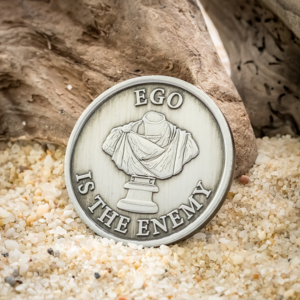It’s almost a cliché at this point. A reporter walks into the locker room of a victorious team and gets some version of the following quotes from the athlete who has pulled it off: “It was a team effort.” “We worked hard and got lucky out there.” “I trusted in God and did my best.”
It’s always a surprise to see someone so clearly talented and so obviously responsible for what happened giving the credit for success to someone else. What’s interesting is how far back this tradition goes. Around the first century CE, Plutarch wrote about how “accomplished people give some credit for their success to the gods and to luck, as when Timoleon dedicated a temple to the goddess of chance after destroying the tyrannies in Sicily. Python, when the Athenians were marveling at him and honoring him for killing Cotys said, ‘God did it through the agency of my hand.’”
One reason they did this was to avoid envy, and that’s likely true with athletes today. Make yourself too conspicuous, and you attract enemies and unnecessary attention. But almost certainly the real reason is to keep ego at bay, to stay humble. Marcus Aurelius talked about avoiding “imperialization”—being stained by the power and success that he had been given. The ancient world, not unlike the history of sports, is filled with examples of people who took undue credit, who believed all the hype and cheers and became worse for it. The real pros focus on all the things other people did right, they focus on where they themselves fell short, because this is an attitude that makes them better. They know that ego is the enemy.
Did the Stoics really believe that sacrifices made a difference? Maybe. It probably also did hurt to actively practice crediting omens and rituals for success. It was an easy way of giving credit to something bigger than them, to remind themselves they weren’t totally in control, and how big a role chance played in things.
That athletes are still continuing this tradition thousands of years later is a sign that the practice works… and that we should develop our own.
Ego Is The Enemy. Whatever we’re doing in life—whether we’re aspiring to do something, experiencing success or in the middle of difficulty—ego is the enemy, every step along the way. That is why we designed the back of this coin to illustrate the three stages of this cycle: Aspiration. Success. Failure. Click here to learn more.
P.S. This was originally sent on December 23, 2020. Sign up today for the Daily Stoic’s email and get our popular free 7-day course on Stoicism.
